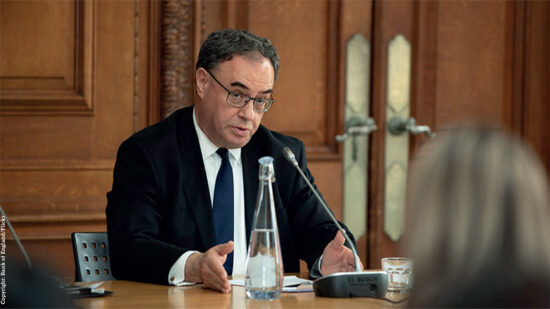This video series sees International Adviser chat with second careerist financial advisers to discuss their journey into the advice sector.
In the video above, Nikki Pipping talks about her move from the events industry to financial advice and the lessons she has learned from her transition into the sector.
Pipping is now a financial adviser at Collective Financial Planning. Before that she was a paraplanner at Acumen Financial Services.
Transcript:
[Robbie Lawther] Hi. My name is Rory Lawther. I’m senior reporter for International Advisor. Today’s feature is why I became a financial advisor. Today we’re joined by Nikki Pipping. Thanks for joining us Nikki. The first question to ask you is, what were you doing before financial advice?
[Nikki Pipping] So my career before I had my children and before I became a financial advisor, I actually worked as an event manager. I worked in London for a big design agency and I managed live events and car launches, conferences, that kind of thing, both in the UK and around the world.
[RL] What made you decide that financial advice is the right sort of area for you and what brought you into the sector?
[NP] So I had had a financial advisor personally since I’d left university. I met him in my very first job. I had very little money and I’d been a student for four years, but he kind of walked alongside me throughout my life and educated me in the world of finance. He helped me find a mortgage, convinced me that saving little and often would bring big rewards and help me set up a pension. And I was always fascinated with his world and the world of finance and everything like that. He had tried to bring me on board for a long time, but I had kids. Life took over.
So once my children were a little bit older and my personal circumstances changed, I joined him part time as a para planner – someone who works alongside an advisor. They do a lot of the reporting, the analysis, that kind of stuff. I absolutely loved it. It appealed to my scientific brain and my organising skills. I love nothing better than a phone. So I absolutely loved that for a couple of years. And then my children got older. Still, my circumstances changed again and I decided to go full-on and train to be an advisor to take over from my financial advisor, who at that point was considering retiring.
So what brought me to it was just the sheer variety of the work and the massive impact you can have on someone’s life by educating them about finance, helping them organize their finances, put protection in place, and being able to plan their futures so that they can have the life that they will going forward.
[RL] Is there anything that surprised you when you became a financial advisor?
[NP] Many things. I suppose I had not realized the amount of training, ongoing training there would be, the amount of financial knowledge you need and how much that changes year on, year out, every budget, there’s a change in taxation or rules. So the amount of ongoing training, the amount of ongoing CPD we call it, is huge. The number of exams that never stopped.
I thought I’d do my financial advising exams and that would be that, but that is not the case. So continuous exams. But also what surprised me is how different everybody’s situations are and how you might know the goals. But applying them to everybody in their own personal circumstances, it’s different every day, different to every single person. And that keeps my day and my job exciting and different every day.
[RL] The last question I’m going to ask you is, what’s the most important lesson you have learned since becoming a financial advisor?
[NP] I think the most important lesson I’ve learned is just that it’s not the knowledge that you have necessarily that makes a difference to someone’s life, it’s the ability to sit down and to really listen to that client, to empathize with their situation and to meet their objectives, to understand what it is that they need in their life and understand that and help them achieve that particular goal.
So empathy is a really key skill and just having the time and patience to listen to each person, every every person’s situation is different.
[RL] Thank you, Nikki. Thanks for joining us.
[NP] Thank you.








